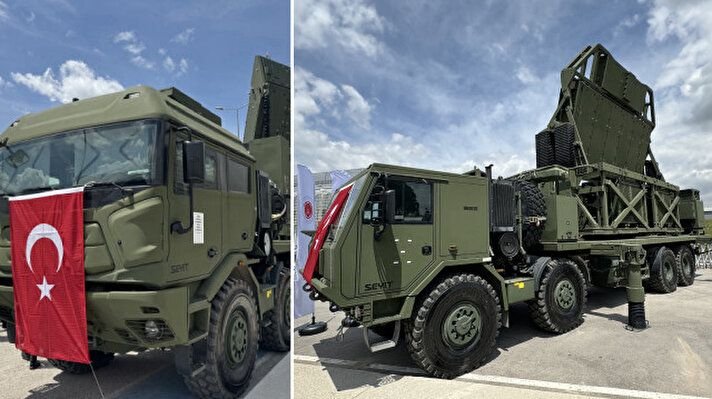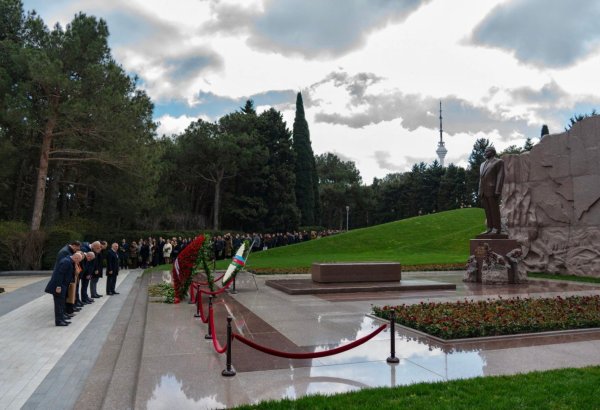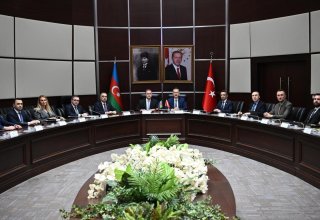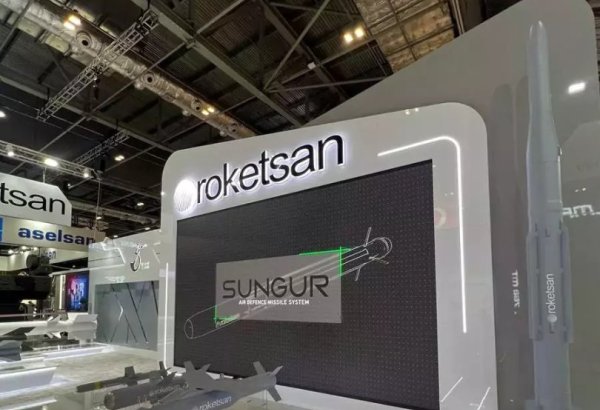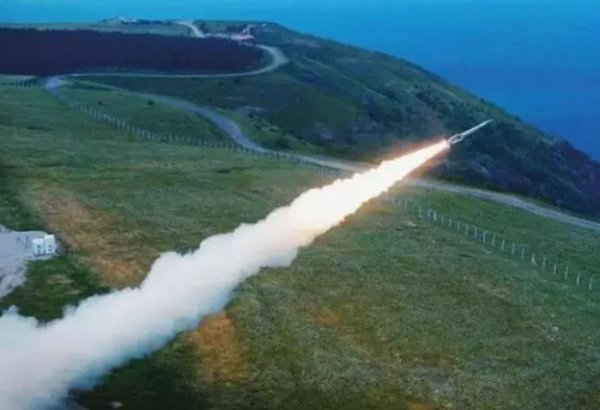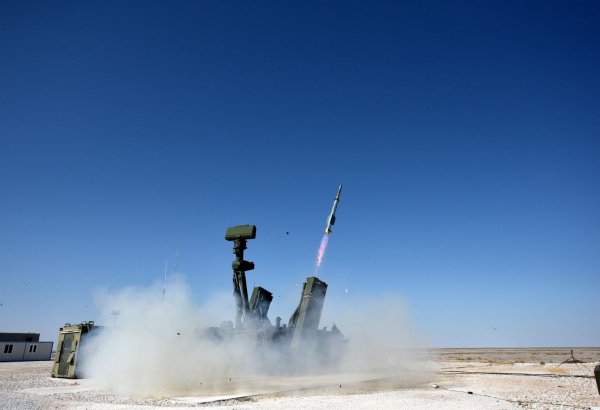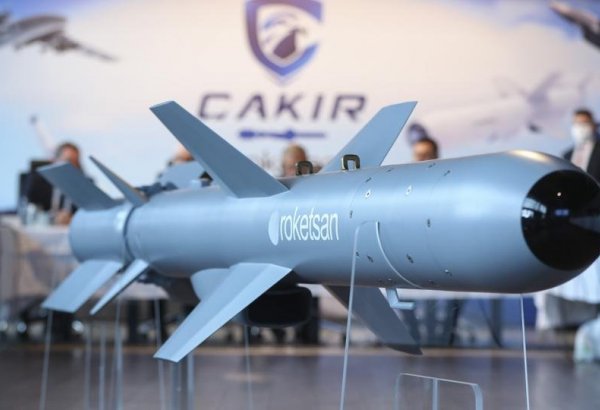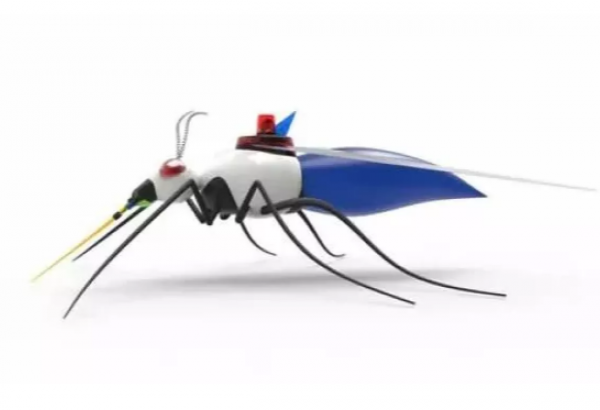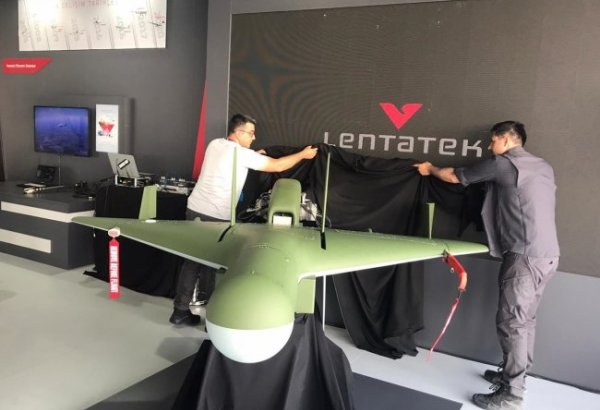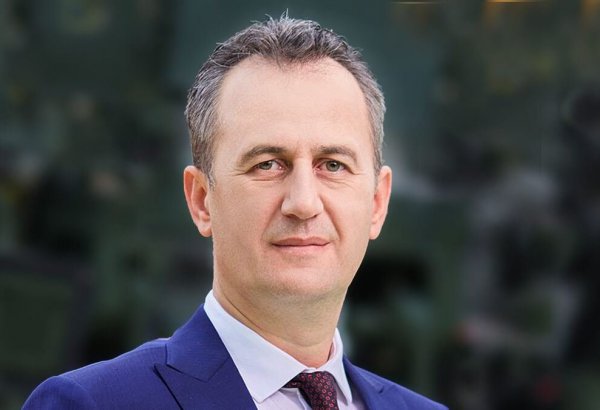Baku. TurkicWorld:
Turkiye's longest-range radar, the ALP 300-G, has been delivered to the Turkish Armed Forces, TurkicWorld reports.
A highly strategic product developed domestically by the Military Electronics Industry (ASELSAN). The delivery ceremony for the 'Portable Early Warning Radar System,' Turkey's longest-range radar, was held at the ASELSAN Golbashı Facilities. Haluk Gorgun, the Presidency of Defence Industries Chairman, emphasised the significance of the Portable Early Warning Radar System, which has entered the Turkish Armed Forces inventory, stating it as a highly strategic product.
ASELSAN organised a ceremony at its Golbashı Facilities for the first delivery of the early warning radar systems, the country's longest-range radar, developed domestically and nationally for the Turkish Armed Forces.
Gorgun highlighted the importance of radar systems in terms of battlefield and border security, stating that they have been working in the radar field for nearly 30 years.
Gorgun mentioned that they have conducted studies to develop radar systems, especially for aerial reconnaissance, surveillance, border surveillance, naval platforms, air defence systems, missile systems, search and surveillance, fire control, tracking, and weapon detection, with new technologies to make the country superior. "The Portable Early Warning Radar Systems delivered are highly strategic products. There is a distinct satisfaction in the domestic and national production and its entry into the inventory," he said.
Gorgun drew attention to the fact that all early warning radar system product groups developed by ASELSAN for the Turkish Armed Forces have been named ALP, stating that the delivered radar is also referred to as ALP 300-G. Görgün emphasised that this radar system is capable of about 500 digital communications and can process the content of 81 DVDs per second.
Gorgun pointed out that about 40 different radar exports have been made to approximately 10 different countries, stating, "In the world, there are very different radars in use in Italy, France, and the United States. The ALP 300-G we delivered today is superior to all of them in terms of resolution, range, and accuracy. This radar has active electronic scanning capability and operates statically. The ALP 300-G radar has the ability to transmit and receive signals in over 4,000 directions. While operating statically, it can perform the remaining operations in case of a malfunction in a module. In addition to these advantages, compared to rotating radars, our radar can receive reflections without waiting for the completion of a period. Moreover, it can send a verification signal to achieve greater accuracy."
Gorgun indicated that over 435,000 lines of code were used in the radar, saying, "We have nearly 20 patents in the development of this radar. Our radar can also be set up in 30 minutes. It provides uninterrupted communication by sending a radio link for remote access."
Gorgun emphasised that 436 companies contributed to the radar project, saying, "The radar is very resistant to a wide range of electronic warfare. One of the advantages is that, with our technological dominance, technological support can be provided very quickly whenever needed. Quick responses can be given in the development of the next generation of members."
"We have passed an important stage in our early warning and air defence radar family with the ALP 300-G," said Ahmet Akyol, General Manager of ASELSAN, drawing attention to the many significant successes ASELSAN has achieved in the radar field in recent years.
"We have gained design and production capabilities in all frequency bands. We completed our naval platform radar family with Cenk and Akrep, which entered the inventory in 2023. With the ALP 300-G and the low-altitude radar that will enter the inventory this year, we have passed an important stage in our early warning and air defence radar family. With our AESA Nose Radar Murad, which has brought us to the top rank in the radar league, we have become one of the very few countries that can develop airborne radar," Akyol said.
Akyol emphasised that ASELSAN has become capable of meeting all of Turkey's fundamental needs in the radar field domestically, stating that they are preparing for future technologies and continuing R&D studies to develop Quantum radar with TOBB University and Gebze Technical University.
Akyol pointed out that the design and production of GAN chips used in AESA radars and all sub-components are carried out at ASELSAN, stating that they have nationalized the gallium nitrate transistors used in these chips at Aselsan Bilkent Micronano, a company established with Bilkent University.
Stating that they aim to make ASELSAN one of the world's largest 30 defence industry companies by 2030, Akyol said that while pursuing this goal, they have adopted the vision of producing the best products in the field, developing game-changing technologies, and focusing on export-oriented growth.








